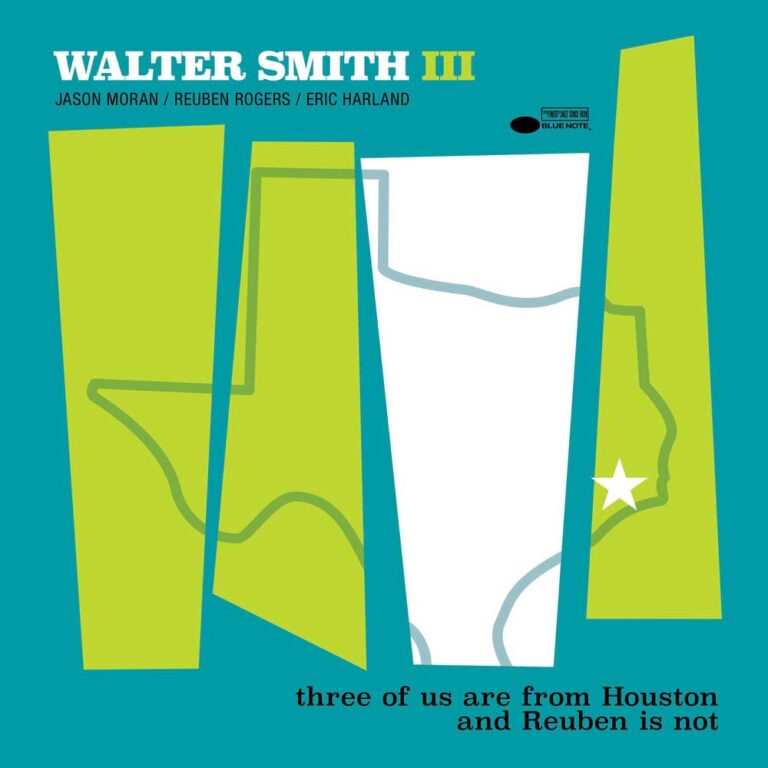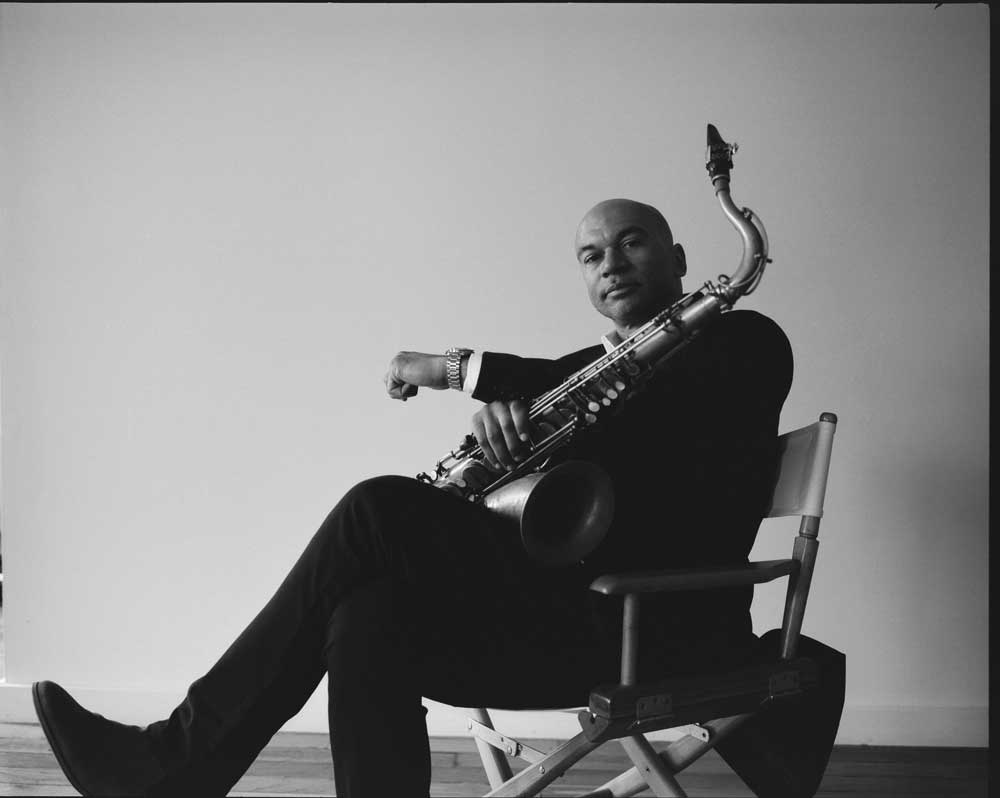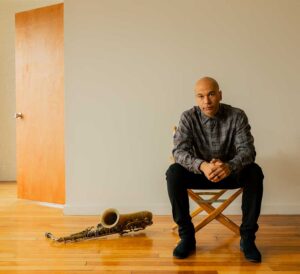Is there such a thing as a Houston sound? Saxophonist and bandleader Walter Smith III, who is from there, thinks so. “You’ll hear a lot of style attached in terms of the harmony and the building of melodies, in the elements that are groove-oriented, even in the approach to playing,” says Smith, 43, a post-bopping saxophonist and bandleader acclaimed as one of the most compelling, forward-thinking talents of his generation.
“And everybody has a great sense of humour,” he continues with a smile. “All those things put together make something recognisable. Something Houston.”
Smith’s first quartet album, “three of us are from Houston and Reuben is not” is a spirited paean to the Texan capital and US cultural hub – where long-established clubs such as Cézanne continue to platform a wealth of gifted players – that features fellow Houstonians, pianist Jason Moran and drummer Eric Harland, alongside Virgin Islands-born bassist Reuben Rogers, the group’s original lynchpin.
“Reuben brings an old school melodic and groove-oriented approach to playing the bass,” says Smith, the son of an elementary school music teacher who began studying saxophone aged seven, then attended the Kinder High School for the Arts, as did the few-years-older Harland and Moran. “He establishes the foundation of a song and keeps you grounded to the point of what you’re doing.”

WALTER SMITH III Three Of Us Are From Houston And Reuben Is Not
Available to purchase from our US store.Featuring ten originals and an inspired take on Sam River’s free-bop tune “Point of Many Returns”, the album is Smith’s second release for Blue Note, his go-to label in the late 1990s and early 2000s: “I always loved the legacy stuff. Freddie Hubbard. Lee Morgan’s ‘Cornbread’,” he says. “But when I got to college,” – Smith graduated from Berklee in 2003 then got a master’s degree from the Thelonious Monk Institute of Jazz – “I got into the newer signings like [saxophonists] Greg Osby and Mark Shim. Eric Harland was on there. I particularly loved Jason Moran’s ‘Black Stars’. I bought every single thing that Blue Note put out each week because they always seemed to be beating the trends.”
Now based in Boston, Massachusetts, where he is chair of woodwinds at Berklee College of Music, Smith is an in-demand sideman who was racking up over 300 gigs a year before deciding to concentrate on solo work. He has played and/or recorded with everyone from Terence Blanchard, Herbie Hancock and Joshua Redman, while Reuben Rogers and Eric Harland featured on Smith’s 2006 debut “Casually Introducing”, a much-praised work that included a cover of Sam Rivers’ hard bopping “Cyclic Episode” as well as originals showcasing Smith’s creative depth and arranging skills.
While the starry likes of trumpet player Ambrose Akinmusire and drummer as well as fellow Houston native Kendrick Scott featured on Smith’s 2014 solo release “Still Casual”, and again on his 2023 Blue Note debut “Return to Casual”, Smith was in thrall to the formidable rhythm section that has accompanied the sax master Charles Lloyd for over a decade, exemplifying their uncanny empathy on such golden recordings as 2017’s “Passing Thru”. Their line-up? Jason Moran, Eric Harland and Reuben Rogers.
“We’ve all done many recordings and tours together over the years, a million different things,” says Smith. “Eric, Jason and Reuben are all funny people; we like hanging out. When we met to rehearse this new album the day before we recorded we played for maybe 30 minutes then hung out for three hours. That kind of comfortability translates into anything, not just music.”

But where Smith’s laidback approach to life variously translates to nerdy games on tour (“I was just in Europe for three weeks with Joe Sanders, Danny Grissett and the drummer Bill Stewart and every day on the train we’d each play something and the others would guess who it was, the record, the label, the year; real nerd stuff”), his music is anything but casual. Granted, his compositional approach on this album involved more risk-taking than before, implementing a less-is-more aesthetic that spoke to Moran and Harland’s knack for spontaneity, to create worlds from small amounts of written material.
So we have tracks such as “Seesaw”, an opener that nods to the influence of Harland and Moran on the younger Smith and a tune that fizzes and waltzes; “Cézanne”, a mellow homage to the Houston joint that swings as it evolves; and the sparing, Ornette Coleman-esque “24”, a piece titled for Smith’s lucky number: “It’s the day I was born. It was my pager code number in high school, so I’m kind of reminiscing on those times. I started off with a 24-note tone line that I broke up and changed.”
There’s fun had on “Gangsterism on Moranish”, a revamped tune from Smith’s Harland-and Moran-featuring 2010 album “III” that takes in the pianist’s “Gangsterism” series and grooves even more fiercely, Smith’s tenor dancing with intricate yet airy dexterity. “That one I love,” he says. “We played it kind of straight on the recording but I’m excited about playing it live because there are so many spots that will open up and go into this long kind of moving, grooving, pushing and pulling tempo thing.”
It will also be a Houston thing. “I want to show that Houston isn’t only about oil, guns and ten-gallon hats,” says Smith. “It’s a place with a thriving music scene; I mean, there is gospel there as a backdrop too, and we have our own hip-hop and rap music as well. But the jazz community is incredibly strong. I could name at least 20 important people on the international scene, recording and touring, that are from there. Most of those who leave they still call Houston their home.”
He pauses and smiles, and then says, “Including me.”
Jane Cornwell is an Australian-born, London-based writer on arts, travel and music for publications and platforms in the UK and Australia, including Songlines and Jazzwise. She’s the former jazz critic of the London Evening Standard.
Header image: Walter Smith III. Photo: Travis Bailey.


